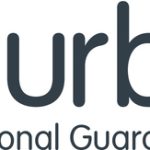
To get the most out of your time and energy spent studying, it is helpful to be familiar with the most efficient methods for acquiring the latest information. You do not have infinite spare time to devote to learning, so you should make the most of your time. It is essential to learn how to store current information well, find it when you need it, and use it correctly in different situations.
The ability to learn well does not come overnight but putting a handful of these strategies into practice regularly can allow you to get more from your study time.
Always try to study at the same time.
Not only should you schedule a time to study, but you should also establish a regular, daily study habit. According to specialists Simply Academy, if you want to escape the fear of studying, you must set a consistent time to study each day and week to form an effective routine. You will be better able to focus and get more done during your study sessions if you take the time to prepare yourself mentally and emotionally before beginning.
The Feynman Technique
The Feynman Technique is a straightforward approach to comprehending complex ideas with ease. A fundamental principle is “if you want to comprehend anything properly, strive to convey it simply.” This means that when you try to explain an idea in your own words, it will help you grasp it fully. In this method, you have to rephrase what you are learning as if you were teaching it to someone else.
Spaced Practice
By dividing study time over a more extended period, students are less likely to feel the need to cram the night before an exam, as is the case with traditional memorisation methods. If you break up your study into smaller chunks, your brain has more time to develop associations between concepts and store new information in a way that is easy to recall later.
The PQ4R Method
An active approach to learning, such as the one used by this method, has been shown to increase the retention of information and depth of comprehension. PQ4R is an abbreviation for the six stages involved.
- Preview: Before diving into the reading, skim the material to understand the subject. Only read the highlighted sections and skim the rest.
- Question: What am I hoping to gain from this? So, where do I stand regarding my familiarity with this field?
- Read: To read the answers to your questions, read the information carefully, taking it one area at a time.
- Reflect: Have you resolved all your concerns? If not, try rereading the section to see if you missed the solution.
- Recite: Summarise what you have read and recite it or write it down using your own words; this is called a recitation.
- Review: Go back through the content one more time and resolve any unanswered questions.
Conclusion
The best way to learn is to look at methods that have already been proven to work. Strategies like increasing the time you spend actively memorising and learning new material in diverse ways might be helpful. You can become a better student by constantly learning new things, doing spaced repetition, and evaluating yourself often.












